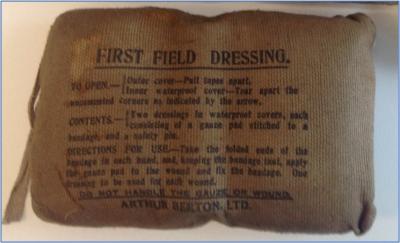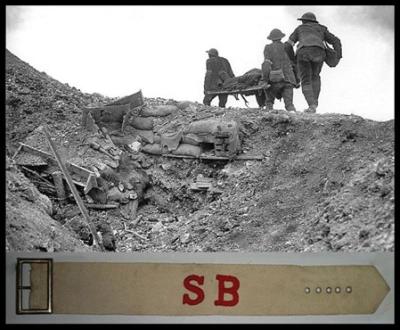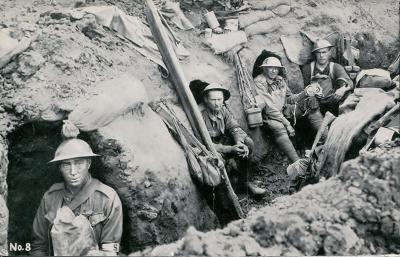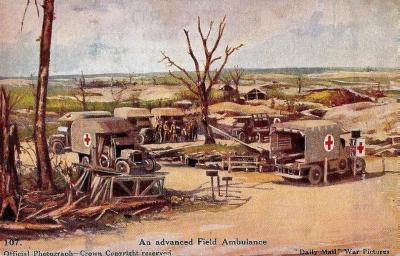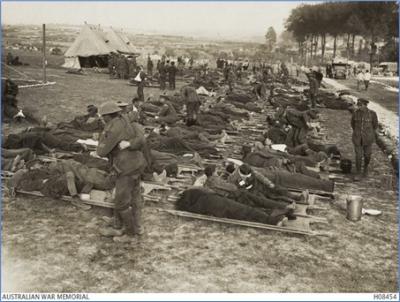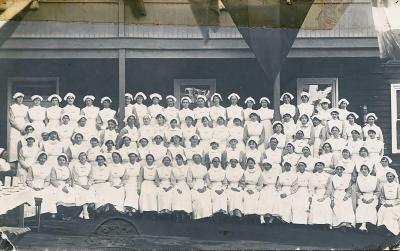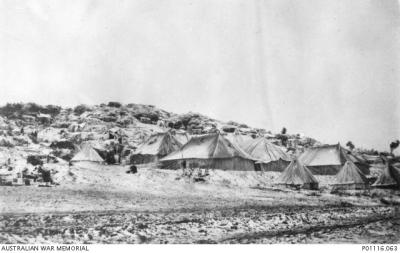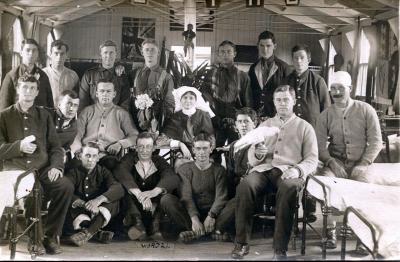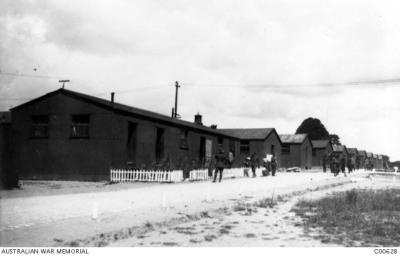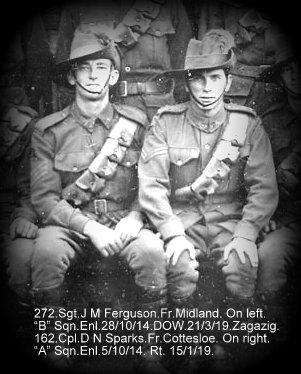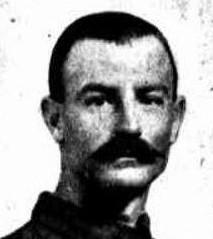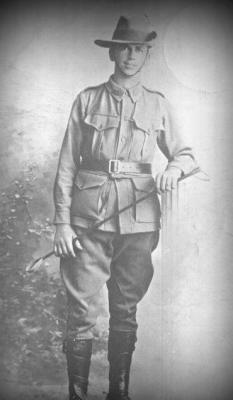Medical Evacuation Chain - World War 1 - Ambulance Train
Ambulance trains were used at various stages of medical evacuation from the front line to hospitals. Light railways were used to transport soldiers to casualty clearing stations, which were deliberately built on railway lines for the movement of soldiers and medical supplies. Ambulance trains were then used to move men from the CCS to base hospitals, and from the base hospitals to evacuation ports.
The average ambulance train carried 400 to 500 patients, more than half of whom were quite helpless and a large number in a critical condition. Many cases were brought there practically as they had been found on the field of battle. All that could be done at the C.C.S. was to dress wounds and give food. The patients on the trains were wearing full uniform in a shocking condition of filth. Under normal conditions the clothes could have been removed and saved but on the trains for the sake of the patient they had to be cut away and discarded.
The disposition of coaches on all the first Ambulance Trains was the same. One half of the train was set apart for ‘Lying cases’, and each compartment of the coach had 4 couchettes. In the middle of the train was the Dispensary, the coach for the Staff and the kitchens. The remaining portion of the train was ordinary 2nd or 3rd Class accommodation, where the so-called ‘walking cases’ were taken in.
The Ambulance trains carried casualties to hospitals near the French coast where they received further treatment before many that required extensive recovery were sent on to England. Once the men had arrived in Britain by ship, they were loaded onto the home ambulance trains that took them to hospital.
Details
Details
During World War I, the Australian Imperial Force (AIF) suffered 58,339 deaths and 151,948 wounded. To help deal with so many injured and sick soldiers, the Australian Army Medical Corps was expanded. Australian soldiers served. They also worked in Australian hospitals for returned soldiers. Separate entries cover the Regimental Aid Post, the Field Ambulance, Casualty Clearing Stations, Base Hospitals (General, Stationary and Auxiliary), Command Depots and Convalescent Depots, Ambulance Trains, Ambulance Barges, Hospital Ships.
Australian Army Museum of Western Australia
Australian Army Museum of Western Australia
Other items from Australian Army Museum of Western Australia
- Medical Evacuation Chain - World War 1 - Field Dressing / Shell Dressing
- Medical Evacuation Chain - World War 1 - Stretcher Bearers
- Medical Evacuation Chain - World War 1 - Regimental Aid Post
- Medical Evacuation Chain - World War 1 - Field Ambulance
- Medical Evacuation Chain - World War 1 - Casualty Clearing Station
- Medical Evacuation Chain - World War 1 - General Hospital
- Medical Evacuation Chain - World War 1 - Stationary Hospital
- Medical Evacuation Chain - World War 1 - Auxilliary Hospital
- Medical Evacuation Chain - World War 1 - Command Depots
- World War 1, Australia, Western Australia, 272 FERGUSON, 10 Light Horse
- World War 1, Australia, Western Australia, 275 GILBERT, 10 Light Horse
- World War 1, Australia, Western Australia, 276 GREEDY, 10 Light Horse
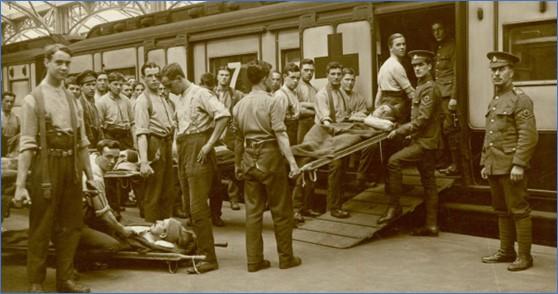
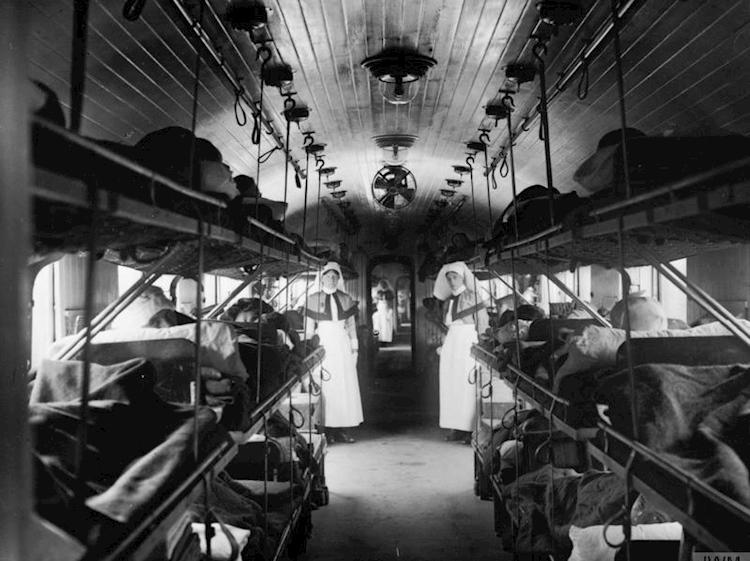
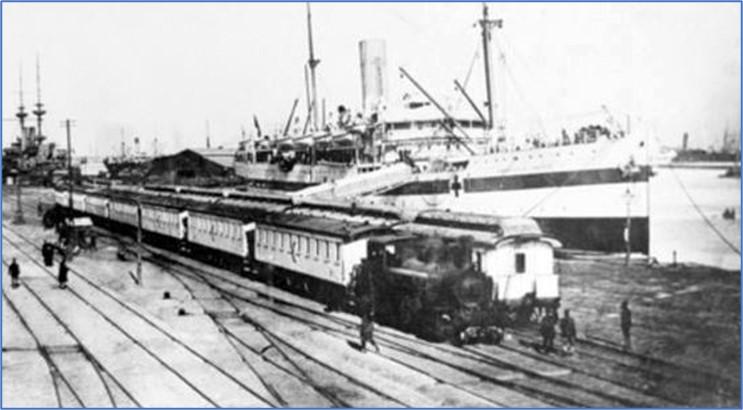
Scan this QR code to open this page on your phone ->

